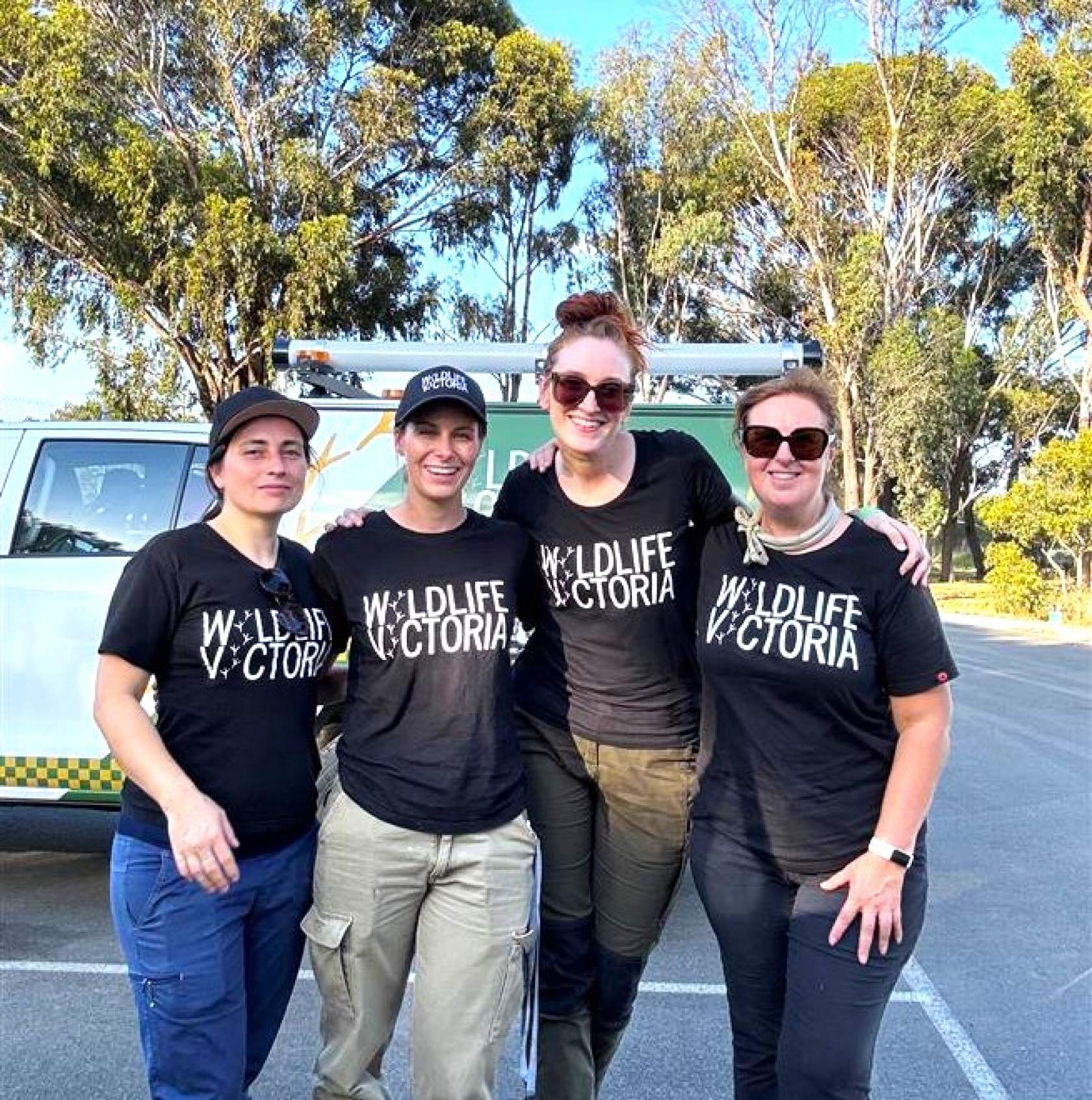
Our threatened grey headed flying foxes have been facing numerous challenges in Victoria in recent months.
The number of calls to our Emergency Response Service regarding the species has increased by almost 288% from the same period the prior year. In the past, the most common reasons for calls involving these megabats were heat stress and entanglement in illegal fruit tree netting or barbed wire; however, this year a new threat has surfaced.
Due to recent floods, bushfires and habitat destruction, Australia’s grey headed flying foxes are experiencing an unprecedented starvation event, from Victoria all the way up the east coast to Queensland.
Flying foxes feed on a variety of nectar and pollen from different native flowering gums, as well as fruit from native and introduced species. The disruption caused by the floods, fires and habitat destruction have caused a summer shortage of suitable food for the flying foxes.
Due to the lack of food, each flying fox is having to fly further and further to find food each night, which puts them at increased risk during their searches.
The impact of this starvation event doesn’t stop with the bats, our flying foxes are extremely important long range nighttime pollinators, playing a vital role in the long-term genetic health of our native bushland. If our flying foxes suffer, so do our forests.
This desperate search for food has led many bats into an increasing number of dangerous situations. Last year, the number one reason for grey headed flying foxes being called into our service was due to entanglement in fruit tree netting. Entanglement can cause serious injuries to flying foxes mouths and wings during the struggle to escape. Even though the Victorian government passed a law in 2021 banning domestic netting with holes larger than 5mm at full stretch, commercial netting has not been reviewed, and use of illegal domestic netting continues despite the ban.
Adult female bats are particularly vulnerable to starvation and entanglement while they are pregnant or nursing young pups.
They can become malnourished; struggling to produce enough milk to support their babies. Wildlife Victoria has had a surge in calls for orphaned pups found on the ground, luckily our specialist volunteer bat rescuers have been able to be deployed to respond to the calls and save these pups.
Heat events can also have an impact on populations, especially young pups. When they become heat stressed, they can fall from trees, needing urgent medical care.
Wildlife Victoria has been working alongside Parks Victoria, Zoos Victoria and the Department of Energy, Environment and Climate Action to implement a heat stress management plan for the colony at Yarra Bend in Melbourne. Earlier this month when temperatures rose, our volunteers and Travelling Vet Service were at the colony, monitoring the population, on standby to act if any heat stressed bats required assistance. By activating the newly installed specially designed sprinkler system, and keeping a close eye on these unique creatures, we were able to assist the bats to stay cool and safe.
So, while there are some improvements being made to help protect our threatened grey headed flying foxes, due to climate change and habitat destruction, this species and the people who care for them remain under increased pressure.
Our amazing specialist bat rescuers are feeling the increase in demand, as are the licensed wildlife rehabilitators who hand raise these pups so that they can survive, thrive and be returned to their native habitat when ready. It is a 24/7 job caring for these beautiful orphans as they need expert care, nurturing, and trust with their carer in order to survive.
Shelters have been pushed to capacity with the number of flying foxes coming into care, and Wildlife Victoria are supporting them with patient care from the Travelling Vet Service.
If you see any type of animal caught in tree netting, please call our Emergency Response Service and take a photo of the animal if you can. This will help our Emergency Response Operators determine what type of rescuer is required and what equipment they will need.
It is very important not to touch or try to free the animal yourself; though it may fly away, it can be seriously injured and need urgent veterinary assistance. It’s also important not to touch any bats, as they can carry a virus that is harmful to humans.

